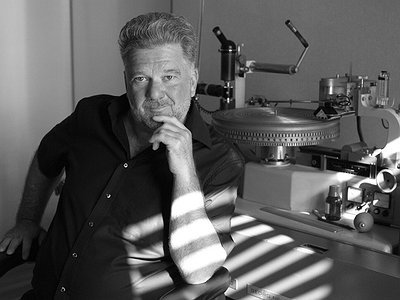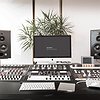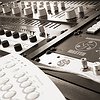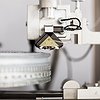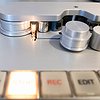Name: Stefan Betke aka Pole
Nationality: German
Occupation: Producer, mastering engineer, DJ, live performer
Current Release: Earlier this year, Pole released his new full-length studio album Tempus. Now, he is following that release up with a new EP of remixes by Sleaford Mods, Rrose, and Alessandro Cortini.
[Read our Alessandro Cortini interview]
If you enjoyed this Pole interview and would like to stay up to date with Stefan Betke's music, visit his official website. He is also on Instagram, Facebook, and Soundcloud. For his mastering work, see the website of Scape Mastering.
To dive even deeper into Stefan's approach and processes, we recommend our earlier Pole interview, as well as our conversation with him about his new album Tempus.
Artists mastered at Scape include Brendon Moeller, Cabaret Voltaire, Chris Liebing, Daniel Bell, Deadbeat, Deepchord, JakoJako, John Tejada, Mathew Jonson, Nicolas Bougaïeff, Orlando Voorn, Peder Mannerfelt, Richie Hawtin, Sarah Davachi, The Orb, Thomas Fehlmann, and Vince Clark.
[Read our Brendon Moeller interview]
[Read our Cabaret Voltaire interview]
[Read our Chris Liebing interview]
[Read our Daniel Bell interview]
[Read our Deadbeat interview]
[Read our Deepchord interview]
[Read our JakoJako interview]
[Read our John Tejada interview]
[Read our Mathew Jonson interview]
[Read our Nicolas Bougaïeff interview]
[Read our Orlando Voorn interview]
[Read our Peder Mannerfelt interview]
[Read our Richie Hawtin interview]
[Read our Sarah Davachi interview]
[Read our The Orb interview]
[Read our Thomas Fehlmann interview]
[Read our Vince Clark interview]
Do people usually sit in when you're mastering their music?
It does still happen that customers come here. Especially when they're working with me for the first or second time. It simply shortens the communication routes. If someone is sitting right next to me, I can respond to their ideas immediately. Whereas, if the customer is not here in the studio, then you need to always send the file back and forth. Which can sometimes end up being a bit more time-consuming.
Some simply enjoy hearing their music on a loud system here. I'm sure it's a very nice conclusion to a project for many artists.
Also, when I have my own stuff mastered in another studio, there's always this strange "aha" effect: You've been working on your own stuff for weeks, months in some cases. And then someone listens to your music with you. And you suddenly hear your own stuff completely differently. You perceive it completely differently. 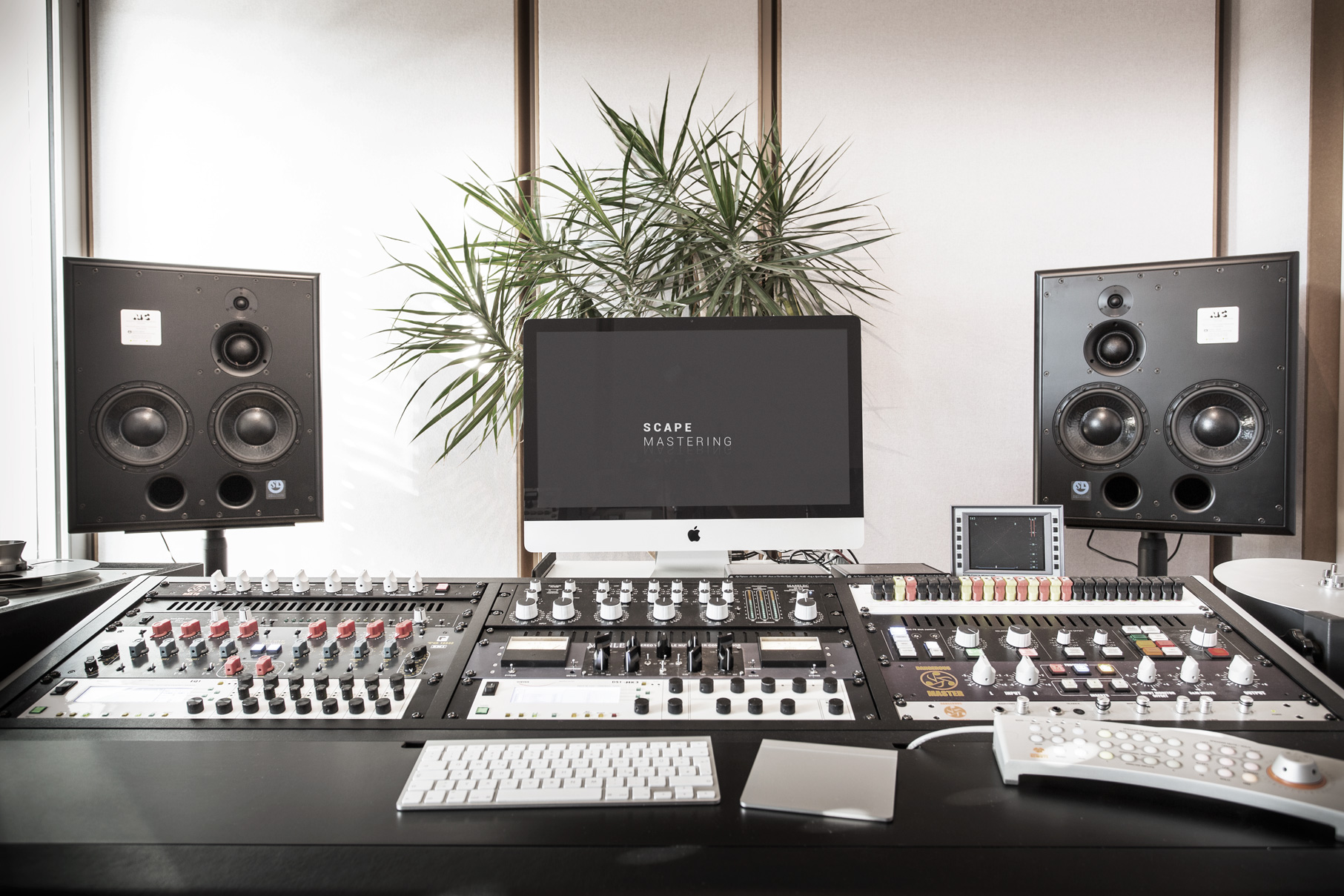
Scape Mastering Image (c) Scape
99% of musicians say that mastering is a black box for them and that they have no idea what's going on. Is this perception correct in your opinion? And if so, what could possibly make mastering such an art?
There is some truth to this. Many artists who come here definitely ask themselves: What is he doing with the stereo sum? And all these strange devices ... I've seen them all on the photo on his website before, but I don't know exactly what they do.
That said, I don't think the artists have to understand them.
There were also a few customers who told me: Forget your respect for my work. Just do your thing and if I don't like it, I'll tell you. Others will say: I've sat here with you and heard the music on thje studio, but I want to hear it at home before I can really tell you whether I like it or not. Because in this mastering studio, everything sounds completely different and better and it's loud. You know, the moment I tweak something, it changes drastically and this effect alone often leads to people saying: I think it's better this way.
But what I've also noticed is that many people are simply interested in sitting next to me and being able to tell me that they've noticed that the vocals in the second track are just a bit too loud – and can I do something about that because they can't get back to the original mix anymore ...
There's this idea that if it's mixed well, I don't need to master it.
That's only partly true. We master for specific formats after all. If someone were to tell me, OK, I have a digital production that I only want to release on digital media, i.e. streaming services or download platforms ... then you could probably make a good mix and consider it good enough. But if I want the music to sound equally well on different systems - i.e. on a mobile phone, on a computer system or in a museum as a small installation in extracts – then you'll need to adapt it to those formats. So mastering is still relevant from a purely technical point of view alone.
But there's a second aspect that I actually find much more important. After all, the first part is technical and anyone can learn the technical side. Anyone can read that a stereo bass below 500 Hertz is unsuitable for vinyl and that you have to equalise it until the cut works.
But what many people lack is an education in music history. I simply know how to master a jazz record because I studied jazz myself. And I've been visiting clubs long enough to know how to work with a techno bass drum. The same applies to reggae and bass, which is another speciality of mine as a producer.
In my opinion, technique only takes up 30% of mastering. The remaining 70% is really understanding the music and optimising it in such a way that brings out the artist's idea even more clearly than with the original mix.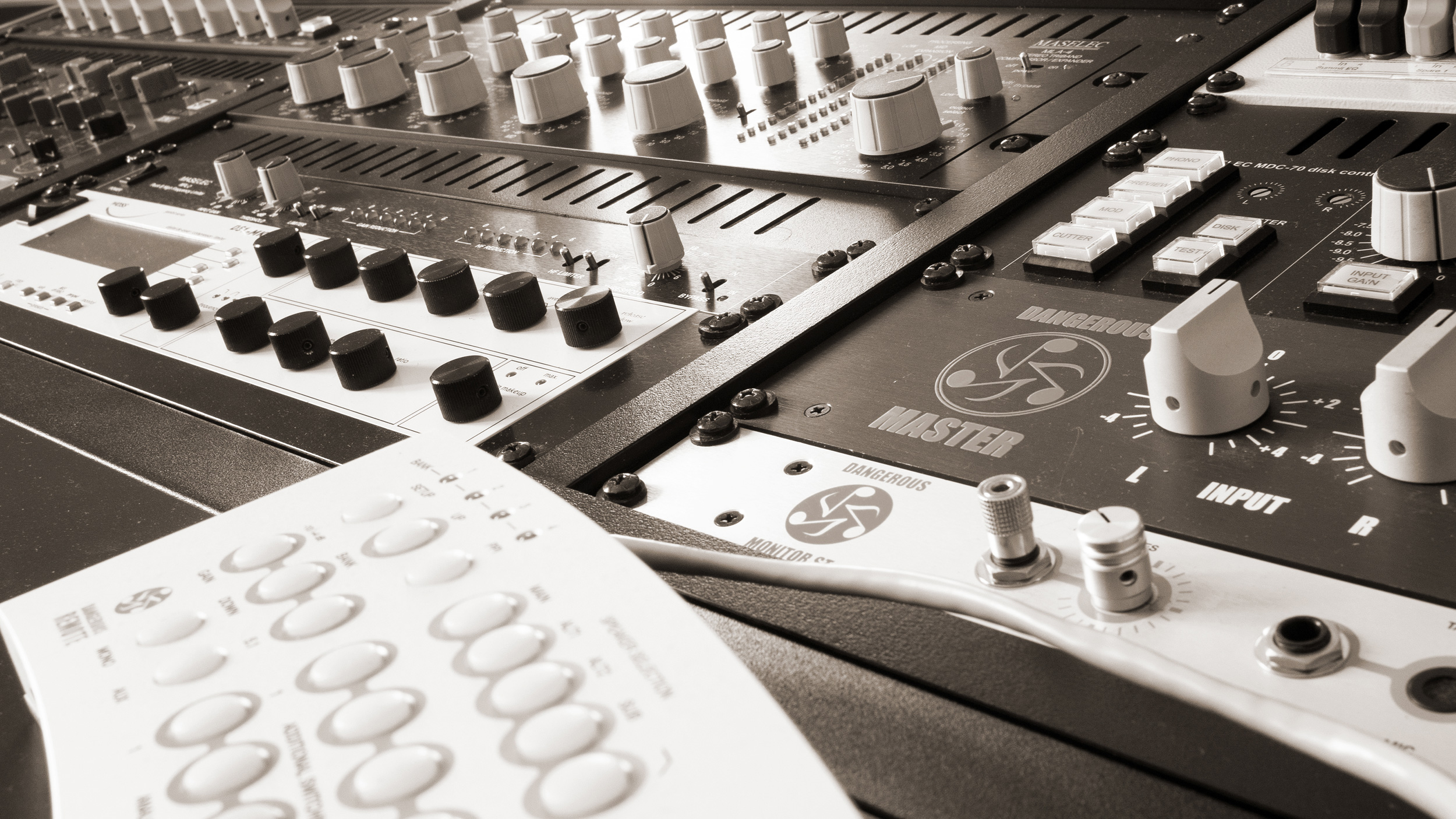
Scape Mastering Image (c) Scape
Do you see a creative component in mastering?
I definitely believe that a mastering engineer has a recognisable style. We all work completely differently. There are people who always make things extremely loud and there are people who tend to keep the dynamics intact. There are people who find a middle ground between the two.
Basically, I approach the original production with respect. And the same goes for the people I know and respect myself, to whom I would give my own music.
The equipment someone uses can already reveal a lot in that regard. An EQ that we use for mastering might have a gain or attenuation rate of 3 to 5 DB maximum. Whereas mixing consoles used for production, recording and mixing sometimes have 15, 20, 25 DB ranges. What this means is that we no longer want to intervene on a massive scale. If you find yourself in a situation where that is necessary, the mix is really just out of control.
One album that comes to mind to me is Pink Floyd remaster of Animals. The new version sounds completely different to the original. How do you see such radically different productions?
When you make a remaster, you make a conscious decision to adapt it to the present day. I also had a few productions that were remastered for a re-release and some of them were from the early 80s and mid 70s. Some of the originals had never even mastered at all.
You have to understand that mastering is a development that started fairly late. It's up to the artists to decide whether they find this breath of fresh air suitable for the songs.
Your first three albums have also recently been reissued as remasters. I found it hard to detect any change whatsoever.
True, I decided to leave the music pretty much the way it was back then and just corrected a few mistakes that I'd made. There were passages on the first releases that were jarring. I edited them accordingly. But apart from that, I decided to leave it as it was because I didn't write these albums in 2022, but in 1998. My understanding was different back then and I accept that.
Sometimes a remaster simply provides a reason to be able to sell the material again. I did something like that for Klaus Schulze: I remastered his entire back catalogue for vinyl. It was never my job to make it sound more modern. The idea was simply to preserve the full tonality and dynamics while working with playing times of up to 30 minutes per side.
With Alphaville, too, I completely remastered everything. Bernd sat next to me and said, OK, it basically has to sound the way it was back then because we wrote it in the 80s. But there wasn't enough kick on it back then. So give it a bit more, we just didn't master it back then. There's that too.
[Read our Alphaville interview]
Scape Mastering Image (c) Scape
I keep hearing in these discussions that technology has supposedly become so much better today when it comes to mastering. Is that really the case?
Yes, stereo imaging, increasing the width of your mix and so on - this wasn't even in vogue during the heydays of the Beatles. It didn't exist. People knew that there was a physical division. But stereo microphony wasn't enough.
The idea of stereo itself is not actually an element that exists in nature. You can't walk through the forest and hear the rustling of leaves in either stereo or mono. If you were to seal one ear, you'd still hear the same thing, but only on one side. We don't hear in stereo and the wind doesn't blow through the leaves in stereo either.
But we can define a spatiality that our ears perceive because they are located on the left and right and from the right side. This, then, can be simulated in the studio and be captured on a disc. The equipment we use today can massively amplify this effect. We can break it down into mid-range information and information coming from the side.
This helps make a production seem more lively and bigger.
With electronic music, you don't normally have this spatial distribution, as you would with a rock production, classical music or jazz, for example.
I actually pay a lot of attention to this in my productions.
The last Pole album, Fading, already had an extremely large and wide stereo image and the instruments were nicely distributed.
This has now become even more pronounced on the new album Tempus. But that's also partly due to the fact that I now simply have a better space here in the studio. I have the small production studio alongside my master's programme, and a lot has happened in terms of sound compared to my old production studio.
I'm very happy that I can now position things a little more pronouncedly in the mix. You can almost walk through the music in a way. You always have the feeling that it's constantly around you and never just comes flying at you from one dimension.
I wanted to talk about one component of your studio in a little more detail, namely your ATC speakers. These speakers are a key element in terms of volume and investment
They are very interesting because the developer designed them according to the piano principle. He sat down and said: What I want is for the frequency spectrum of a piano to be reproduced on these loudspeakers, from the lowest note right until the highest note. And I want it to be as linear, distortion-free and with as little resonance as possible. The idea is that if I can reproduce this one instrument perfectly, if that works, then I can reproduce everything on it. Which is actually true.
These loudspeakers do not have any adaptation to room acoustics. They only have one amplifier, built into the back. So they'll play a signal exactly the way you put it in.
When I got them, the guys from ATC were there and set them up with me and they said it was a stroke of luck. According to them, the speakers can sound brilliant in your room, but they could just as well not work at all because the room isn't right for them. You can't adjust or callibrate them the way you can with Genelecs and DSP systems. So if it doesn't sound right, we'll have to just take the speakers back with us again.
But the acoustics in my room are thankfully almost perfect. So thank goodness it worked ... Bear in mind, each of them weighs 72 kilos, so it was quite a job to get them up here in the first place. And they barely fitted into the lift in the front building because the door is really only half a centimetre wider than the speaker itself.
It sounds quite esoteric.
Perhaps, but this approach is reflected in good mastering equipment.
The Weiss EQ, for example, has exactly 440 hertz ... concert pitch A, a well-determined piano, so to speak – after Verdi, just to be clear. And then it doubles the octave, 880 and so on, ... 220, 110. Which means you can always set exactly a multiple or an equal division of the octave on the EQ. In other words, the EQ follows the tuning of a classical piano and a grand piano. And the speakers do the same.
That's why the EQ is so precise and almost inaudible. 
Scape Mastering Image (c) Scape
Other EQs do not follow this principle?
No, the Chandler, for example, follows a completely different idea. It was developed for the EMI studios in London during the Beatles' time and followed the interests of rock bands at the time. It had a completely different frequency spectrum and split it up completely differently. It doesn't have 440 hertz, it doesn't have 880, it has 800.
Ad the reason is that certain instruments were tuned to this frequency at the time. There are even things that follow the Indian tuning, where we don't have 440 hertz as well-tempered, but 434. Which Jon Hassell then used again in his productions ... and so on.
The question remains whether you can still recognise all this on the speakers and earbuds on which most people will hear the finished product.
I don't know if I'll ever earn the investment back. But I do hope so.
It's an investment, of course. But I'm also investing in my well-being when mastering. I invest in the result for the customer, because they simply get a better result with this equipment. And there's no need for a guilty conscience. This way, no one will feel as though I'm taking money for my work and it won't sound any better than it was before.
That said, a badly mixed recording would sound even worse here, I assume.
They are very honest indeed. You hear what's really in the music, nothing else.
And: What you don't hear, simply isn't there.



